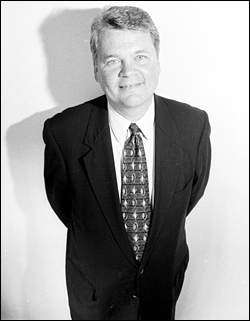The Federal Bureau of Investigation is doing background checks on elected officials around the country so the politicians can receive top-secret clearances for briefings on terrorism. While local law enforcement officials and politicians going through the process praise the FBI initiative, civil libertarians find it deeply disturbing.
After 9/11, the FBI offered governors, mayors, and police chiefs the opportunity to gain access to classified information if they underwent a thorough vetting. The program is voluntary, and the FBI did not provide figures on how many local officials were participating.
In Washington state, Gov. Gary Locke is the only elected official who has received top-secret clearance, according to Maj. Gen. Timothy Lowenberg, commander of the Washington National Guard and the governors chief security advisor. The FBI is doing a background check on Seattle Mayor Greg Nickels but has not yet completed it, the mayors office and the FBI confirm.
One of the big criticisms of the FBI is that we dont share information, explains Bill Carter, an FBI spokesperson. We instituted a program to rectify this, but the [local public officials] have to go through a background check. Carter says the information being shared is classified, so the FBI must ensure that the people who are receiving the briefings are trustworthy. Carter says a number of factors might disqualify politicians from receiving top-secret clearancelying about anything asked of them; recent illegal drug use; unauthorized contact with foreign intelligence officers; and criminal activity or past convictions, including those of a political nature. Carter says law-abiding political activityfree speech, assembly, and dissentwould never disqualify someone from receiving the clearance. Exercising constitutional rights should have no effect, he says.
Being involved in street protests is a problem in FBI files, asserts professor David Price of St. Martins College, who has done extensive research and writing on the FBI, including reading the results of many background checks of deceased academics and politicians. He adds, Im not sure what constitutionally protected means under the Patriot Act. We need to be very worried about this.
Price is also concerned about what will happen when a prominent politician fails to pass the background check. The FBI is notorious for leaks, he says. Price is concerned we are headed toward a political environment where the FBI determines who is fit for public office. He imagines incumbents will be asked on the campaign trail, Do you have a security clearance?
At least one former public official shares Prices concerns: ex-Seattle Mayor Paul Schell. We dont turn in our privacy and freedom in exchange for our security, asserts Schell. He is astounded that the federal government would require a public official who has been thoroughly vetted by the electoral process to undergo an investigation before receiving important briefings. Its another erosion of the relationship between the federal government and the people. Schell also bristles at the invasion of privacy, What the hell business is it of the FBIs?
Lowenberg opposes politicians receiving security clearances by virtue of winning elections. He points out, Weve had people elected to public office who have criminal records, who have finished their terms in jail. He has undergone numerous background checks and regards the loss of privacy as part of the price we pay for security. Your neighbors look at you a little bit differently, he admits, but he is not concerned about it.
Seattle Police Chief Gil Kerlikowske has passed his background check and is receiving classified briefings from the FBI. He says the check was extremely thoroughpeople across the country were contacted about him, including former associates at the Department of Justice in Washington, D.C., neighbors from his days in Buffalo, N.Y., and current neighbors in Seattle. Since the contractors, often retired federal investigators, who carry out the background checks are not forthcoming about the nature of the investigation, people do wonder why they are being questioned about their neighbor or colleague. I got all these calls [asking] Is Gil in trouble? says Kerlikowske, chuckling.
Professor Price is concerned about the nature of the information that the FBI turns up through this process. The FBI goes around to all your friends and neighbors and gathers up all these rumors and innuendos, he says. Its a bad thing for democracy.
He also questions the value of the briefings that the FBI is offering. Price has reviewed a great deal of declassified materials from the FBI and comments, Most of it never should have been classified to begin with. He adds, We dont need this secrecy.
Kerlikowske, however, says the briefings are important. In the long run, you want mayor and chiefs that have a level of detail that would improve their decision making. He stresses that the information is not of an emergency nature. What the clearance allows is background, context, and information. It can be done in a routine or factual way.
The notion of withholding information makes former Mayor Schell uneasy. Im not sure that an elected official should be denied information in any circumstance that affects the public safety of their city.
Professor Price points out the dilemma that classified briefings create for politicians. It really puts political leaders in a bind. It can affect their judgment, but they cant talk about it. All they can say is We were shown some very frightening things.
At least one local politician has decided the solution to all the dilemmas created by classified materials is simply to refuse to be briefed on them. Since 1995, U.S. Rep. Jim McDermott, D-Seattle, has avoided all classified briefings. McDermotts office says the congressman doesnt feel what he learns from the briefings is worth the muzzle he is forced to wear afterward.








